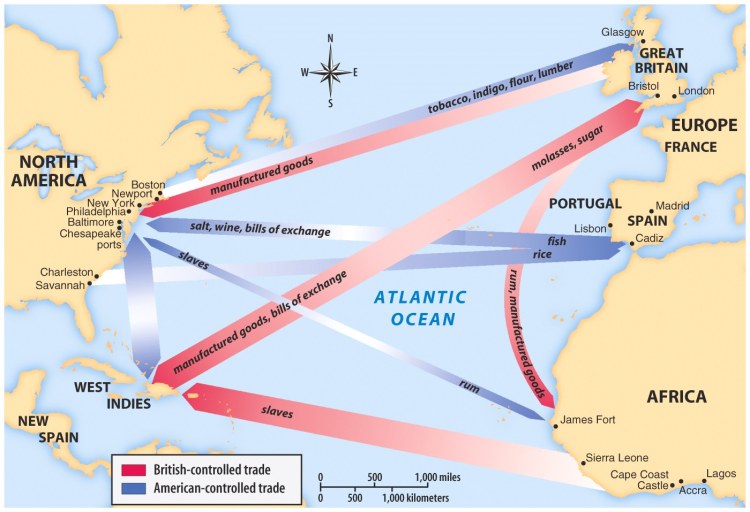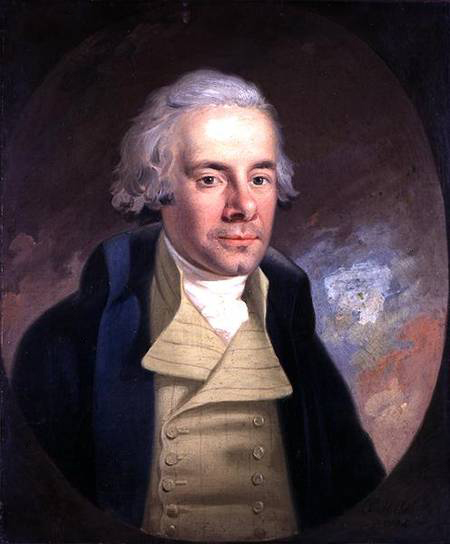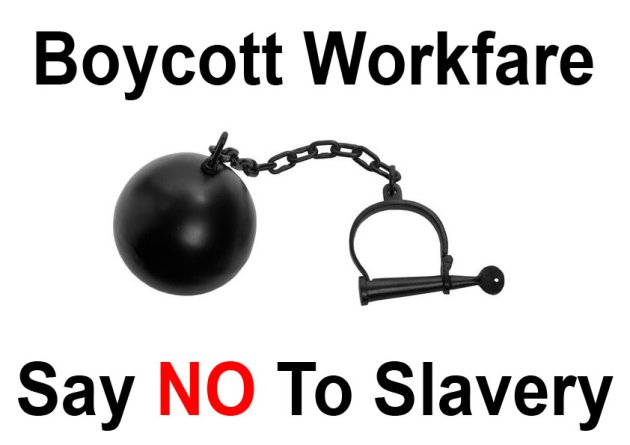The 23rd August is the annual Slavery remembrance day and is held on the date which remembers the revolt of the slaves on Haiti in 1791
It should be noted that slavery had always occurred throughout the world. Everyone from the Romans to The Mongols to The Vikings captured and used slaves. Much of Eastern Africa was frequently raided by Arab slavers and even remote parts of England were sometimes raided by Barbary pirates from North Africa who would carry off unfortunate villagers to live out their lives in places like Morocco and Algeria centuries after the country had been plagued by Vikings and hundreds of thousands of people were transported as slaves from the Ukraine to The Ottoman Empire
Slavery in Africa already existed before Europeans arrived and the slave trade itself couldn’t have run so smoothly without the willing assistance of African traders and chieftains who happily sold off Africans to European and traders.
However as in many other areas, it took a few western countries to turn it into what was one of the most profitable activities in the world and to run it on an industrial scale.

Liverpool, now better known for football, The Beatles and a lively cultural scene was the a major port for the slave trade. Although the city merchants traded in a wide range or items, for various reasons nany local merchants and their ships were involved in slavery from 1700 until its abolition in 1807. As a result much of the city’s wealth in the 18th century came from the trade. The personal and civic wealth gained from slaving cemented the foundations for the port’s future growth.
Slave ships were often built or repaired in Liverpool. Nearly one and a half million Africans were forcibly transported across the Atlantic in Liverpool ships in 5,000 voyages. Traders set out from European ports towards Africa’s west coast. There they bought people in exchange for goods and loaded them into the ships.
The voyage across the Atlantic, known as the Middle Passage, generally took 6 to 8 weeks. Once in the Americas those Africans who had survived the journey were off-loaded for sale and put to work as slaves. Conditions were so bad that 1.4 million slaves died on the journey across The Atlantic.

The ships then returned to Europe with goods such as sugar, coffee, tobacco, rice and later cotton, which had been produced by slave labour.
The triangle, involving three continents, was complete. European capital, African labour and American land and resources combined to supply a European market.
The colonists in the Americas also made direct slaving voyages to Africa, which did not follow the triangular route. This trade increased after 1800, particularly from Brazil.
There had never really been slaves in Britain and there has been African people living here since Roman times. Queen Elizabeth I nearly 500 years ago was said to be astounded at how many black people there were in her kingdom. Whereas some other nations had empires built merely for conquest, in Britain’s case for much of the time, the empire was a mercantile one. This can quickly be seen by looking at the locations of various colonies, Gibraltar, Cape Town, Hong Kong etc. As such the traders of the time though not really thinking of having slaves of their own, were quite happy to make huge profits from the misery of others by transporting slaves across the world, primarily to the Caribbean and the American colonies.
However, to many this was distasteful and unchristian and there had been a steadily increasing abolition movement in Britain as early as the 16th Century.

African slaves were not bought or sold in Britain but were brought by masters from other areas. Together with people from other nations, especially non-Christian, Africans were considered foreigners, not able to be English subjects. At the time, England had no naturalisation procedure. The African slaves’ legal status was unclear until 1772 and Somersett’s Case, when the fugitive slave James Somersett forced a legal decision. Somersett had escaped, and his master, Charles Steuart, had him captured and imprisoned on board a ship, intending to ship him to Jamaica to be resold into slavery. While in London, Somersett had been baptised; three godparents issued a writ of habeas corpus. As a result, Lord Mansfield, Chief Justice of the Court of the King’s Bench, had to judge whether Somersett’s abduction was legal or not under English Common Law. No legislation had ever been passed to establish slavery in England. The case received national attention, and five advocates defended Somersett.
In his judgement of 22 June 1772, Mansfield declared:
“The state of slavery is of such a nature that it is incapable of being introduced on any reasons, moral or political, but only by positive law, which preserves its force long after the reasons, occasions, and time itself from whence it was created, is erased from memory. It is so odious, that nothing can be suffered to support it, but positive law. Whatever inconveniences, therefore, may follow from a decision, I cannot say this case is allowed or approved by the law of England; and therefore the black must be discharged.”
Although the exact legal implications of the judgement are unclear when analysed by lawyers, it was generally taken at the time to have determined that slavery did not exist under English common law and was thus prohibited in England. The decision did not apply to other British territories; by then, for example, the American colonies had established slavery by positive laws. The Somersett’s case became a significant part of the common law of slavery in the English-speaking world, and it helped launch the movement to abolish slavery.
A number of slaves successfully went to court with The Crown deciding in their favour and as more and more exploratory groups ventured deep into Africa and learnt more about Africa, the more public opinion turned towards banning slavery across the world. Olaudah Equinao a black man living in England was one of the most popular and talented individuals of his time and a zealous anti-slave trade campaigner.

The Abolitionists negotiated with trial chiefs in West Africa to create ‘Freetown’ for settlement of former slaves. During The American War of Independence, Britain offered freedom to all black slaves in the American colonies with thousands taking up the offer of safety and freedom, many moved to Canada temporarily before choosing to re-settle in Freetown and the surrounding area.
The man most credited with ending slavery is William Wilberforce (24 August 1759 – 29 July 1833) who is frequently talked as being a contender for the Greatest Briton of all time. He was a far-sighted politician philanthropist from Hull, Yorkshire whose strong Christian beliefs in education and morality led him to spearhead the abolition of slavery and in 1807 with the conservative William Wilberforce leading the way, The Slave Trade Act was passed which also importantly for those in London separated them from France where Napoleon had recently legislated in favour of slavery.
Immediately, Britain put pressure on other nations to end the slave trade and just months later the United States passed an Act prohibiting the importation of slaves. Over the coming years and decades, other European nations adopted the policy. The Royal Navy set up a special fleet in the 19th Century whose purpose was to patrol the Atlantic between West Africa and America and successfully freed over 150,000 slaves and in effect finished the slave trade as it was known. It later concentrated on the Indian Ocean to clamp down on Arab slave traders.

in 1833 The Slavery Abolition Act was passed which made slave ownership illegal in the British Empire. £20 million was paid by the government to compensate slave owners but the freed slaves didn’t receive any compensation.
In the United States it took about a century from when Vermont outlawed slavery in 1777 to Abraham Lincoln signing the Emancipation Act which freed slaves from the Confederate States. In 1948 UN Article 4 banned slavery worldwide. Currently, the country with the worst record in slavery is the African nation of Mauritania where in 2012 it was estimated that 20% of the population are still slaves.
Despite slavery being abolished in some areas now for centuries, slavery in all but name continues throughout much of the world.
Bonded labour
Millions of people today work as bonded labourers. The cycle begins with people being tricked into taking extreme loans for small, everyday necessities. The debts for these necessities are paid back by working intensively for long hours, in extreme conditions, with no breaks or days off. The loan is never quite paid off, and can be passed down for generations and generations.
Early/forced marriage
Mainly driven by the culture in certain regions, early or forced marriage is a form of slavery that affects millions of women and girls all over the world. When families cannot support their children, the daughters are often married off to the males of wealthier, more powerful families. These men are often significantly older than the girls. The females are forced into lives whose main purpose is to serve their husbands and sets them up for a lifetime of abuse.

Forced labour
Everyday, people all over the world are illegally recruited to work through intimidation or threat of violence. When people trafficking occurs, they often find themselves without any identification and therefore are unable to leave. Sometimes, their employers are governments or political parties that operate under the threat of legal penalties. In the U.K., USA and much of Europe people are illegally smuggled across boarders to labour unpaid and with terrible accommodation in agriculture and more illegal activities. This not only ruins the lives of those being enslaved but allows vast sums to be earned from illegal activities whilst also limiting the employment of individuals whose even minimum wage costs make them uncompetitive compared to modern day slave labour.
Slavery by descent
Stemming from bonded labour, slavery by descent is one of the many ways slavery is still alive today. Loans taken generations ago are passed down, as is the “slave status”. These people become their own social class, one that is ridiculed and discriminated against.
Trafficking
It is estimated that up to 820,000 people are trafficked across international borders each year, approximately 70 percent are women and girls and up to 50 percent are children.

However increasing numbers of people are being abducted and trafficked even within their own countries even in the U.K. Furthermore there have been several infamous examples of new residents in the country bringing with them the unwanted traditions of household slavery working in wealthy though apparently normal houses and unable to escape to contact the police.
Forms of child labour
Children comprise a shocking majority of the people employed as slaves today. Most are employed as domestic workers in cocoa, cotton or fishing industries. Many are even trafficked and sexually exploited. In many war-torn countries, children have been kidnapped and sold to political parties to be used as child soldiers.

Despite the intention today of stamping out the modern day slavery in Britain, many believe that the government itself involves itself in a form of slavery. By forcing unemployed individuals to work for free for extended periods of time allows rich organisations to get by with employing less people on a salaried basis. It is intended to get long term unemployed some form of work experience but if it means someone is forced to work in a menial job for no pay then a strong case can be made that the British government should as they say, take a good look in the mirror. One woman took the government to court and won a victory only for the government to then change the law to make what was illegal, legal if not moral.



On 9 December 1999 Liverpool City Council passed a formal motion apologising for the City’s part in the slave trade. It was unanimously agreed that Liverpool acknowledges its responsibility for its involvement in three centuries of the slave trade. The City Council has made an unreserved apology for Liverpool’s involvement and the continual effect of slavery on Liverpool’s Black communities. It is also the site to the International Slavery Museum.
agreed about the modern slavery…
LikeLike
Yes, it is one of several things in life that because it isn’t conducted honestly and in the open like in times past, people aren’t aware that it goes on.
LikeLike
There are many slaves. The high cost of living turns people into slavery. There is no need for this.
LikeLike
What a thorough and excellent blog post. It’s true. People do not realize that slavery is alive and well in the 21st century. It just goes by another name. As you mentioned, it is particularly horrific for women and children.
LikeLike
Very nice summary! So many people are unaware that slavery still exists.
LikeLike
Excellent post…I vote for Wilberforce, one of the world’s greatest men.
LikeLike
Another very informative post, thank you!
LikeLike
I had not known about Liverpool’s involvement in the slave trade until visiting there this past May and touring the museum. It was a complete eye opener.
LikeLike
I keep meaning to visit Liverpool but didn’t know of that museum until a few weeks ago. It looks a really interesting place to visit.
LikeLike
Thanks Stephen, for the informative post. I think it’s horrible what is going on with modern human trafficking and we should all work to raise awareness. If you have time, take a look at my blog post on Wilberforce’s faith and how it influenced him.
http://3rdlawblog.com/2013/09/05/wilberforce-grace-and-the-reformation-of-morals/
LikeLike
I am glad you enjoyed it. Thanks for the link, I am at a location with very poor Internet this week but will definitely read it at the weekend.
LikeLike